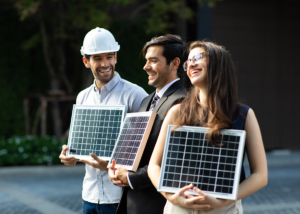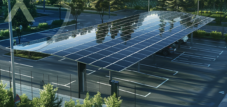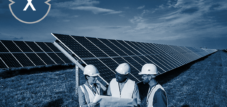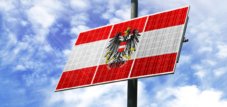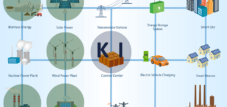Published on: May 21, 2025 / update from: May 21, 2025 - Author: Konrad Wolfenstein

What are Power Purchase Agreements (PPA)? -Economic operation of renewable energy systems without EEG funding-Image: Xpert.digital
What are Power Purchase Agreements (PPA)? -Economic operation of renewable energy systems without EEG funding
PPAS: A key to the economic independence of electricity generation
In Germany, plants for the production of renewable energies outside of traditional EEG funding via so-called Power Purchase Agreements (PPAS) are increasingly operated. These long -term electricity delivery contracts between producers and customers enable predictable financing and represent an important alternative to state funding.
Suitable for:
- Photovoltaics (PV): Build a PV ground-mounted system or PV ground-mounted system with solar – solar park system advice with Xpert.Solar
What are Power Purchase Agreements?
Power Purchase Agreements, PPAS for short, are long -term electricity delivery contracts between the operator of a renewable energy system (seller) and a power buyer (buyer). In these contracts, all commercial conditions for electricity delivery are determined, including the price, the delivery quantity, the duration of the contract and other conditions such as the transfer of proof of origin. The contracts typically have a term between 5 and 20 years, whereby terms of 5 to 10 years are often agreed in practice.
Power Purchase Agreements enable the financing and operation of solar systems without the Renewable Energy Sources Act (EEG). While in the past large photovoltaic open-air facilities could only be operated economically with EEG funding, operators can use PPA to conclude a current direct delivery contract with which the generated electricity is delivered directly to the customer.
Types of Power Purchase Agreements
Depending on the design, different types of PPAs can be distinguished:
Physical PPAs
In the case of physical PPAs, an actual electricity delivery takes place from the producer to the customer. The current is delivered directly to the consumer by the plant operator, which is particularly interesting for companies with high energy requirements.
Synthetic or virtual ppas
In synthetic PPAs, producers and buyers agree on a fixed price per kWh without the electricity being physically delivered. Instead, it is included in the balance sheet group by an energy service provider and traded on the electricity exchange. An additional contract, the “Contract for Difference”, ensures compensation payments, should deviate the market prices achieved from the agreed PPA price.
Corporate PPAS
These are closed directly between plant operators and companies as end consumers. Large technology companies such as Google, Facebook and Microsoft have brought this model to Europe. They allow companies to cover their electricity requirements directly from renewable sources.
Economic aspects of PPAS
For plant operators
PPAs offer plant operators decisive economic advantages:
- Planning income: With long -term prices, PPAs create a secure calculation basis for operators and investors.
- Risk protection: The long -term contracts make plant operators more independent of the volatile electricity market prices and thus reduce the operating risk.
- Financing advantages: The secured income increases creditworthiness and can lead to lower capital costs, which improves the profitability of the projects.
- Marketing of evidence of origin: In addition to the electricity, plant operators can also sell the valuable evidence of origin, which generates additional income.
For plant operators, the right time for price fixing is of great importance, since the price depends heavily on the time of the contract.
For powerkeepers
PPAs also offer significant economic advantages for customers:
- Long -term price security: Companies secure themselves against price fluctuations in the electricity market and win planning security with their energy costs.
- Sustainability strategy: The purchase of electricity from renewable energies with proof of origin enables companies to improve their CO2 balance and achieve sustainability goals.
- Independence of market fluctuations: Companies minimize the risk of increasing energy prices and secure themselves against price tips on the electricity market.
- Branding advantages: Companies can position themselves as a sustainable brand and demonstrably prove this.
Suitable for:
Application cases for PPAs in Germany
In Germany, two main areas of application for PPAs have developed:
Further operation of post-EEG systems
The first facilities have been from 20 years of EEG funding since 2021. PPAs offer a possibility for follow -up financing and continued economic operation for these systems. The PPAs ensure that the operating costs (maintenance, lease) can be covered, even if there is no longer any state funding.
An example of this is the contract between Engie and Google, which enables the further use of 22 wind farms in five federal states after the EEG funding ended.
Financing new systems without EEG funding
PPAs are increasingly enabling funding and building new facilities without government funding. This is particularly relevant for large photovoltaic open-air facilities or wind farms that do not use EEG remuneration.
The long -term acceptance contracts create the necessary investment security here, which would otherwise be guaranteed by state funding.
Market development in Germany
The PPA market in Germany is growing steadily. Corporate PPAs make up most of the market growth and remain the most important market segment. The demand for PPAs on the part of the company currently exceeds the offer of available projects.
The most important customer sectors are information technology (especially for data centers), raw materials and telecommunications, which together make up more than half of the PPA volume on the customer side.
In 2023, the first PPAs for the production of green hydrogen in Germany were also signed, which opened new market opportunities.
Challenges in the implementation of PPAS
Despite the advantages, there are also challenges:
- Complex contract design: So far there is no standardized contract adapted to the special features of the German market. The commercial and legal details must be negotiated individually, which makes the preparation complex and time -consuming.
- Long -term binding: The long contract terms mean a significant bond for both parties.
- Price risks: Depending on the contract constellation, price risks can arise if market prices develop differently than expected.
Why Power Purchase Agreements accelerate the energy transition
Power Purchase Agreements have established themselves as a promising instrument for the economic operation of renewable energy systems outside of EEG funding. They offer plant operators and electricity customers important economic advantages and drive the expansion of renewable energies. With the progressive expiry of EEG funding for more and more existing systems and the goal of a faster energy transition, PPAs are likely to become more important in the coming years and become a central element of the energy transition in Germany.
Suitable for:
Novel photovoltaic solution for reducing costs and saving time
More about it here:
Your partner for business development in the field of photovoltaics and construction
From industrial roof PV to solar parks to larger solar parking spaces
☑️ Our business language is English or German
☑️ NEW: Correspondence in your national language!
I would be happy to serve you and my team as a personal advisor.
You can contact me by filling out the contact form or simply call me on +49 89 89 674 804 (Munich) . My email address is: wolfenstein ∂ xpert.digital
I'm looking forward to our joint project.



